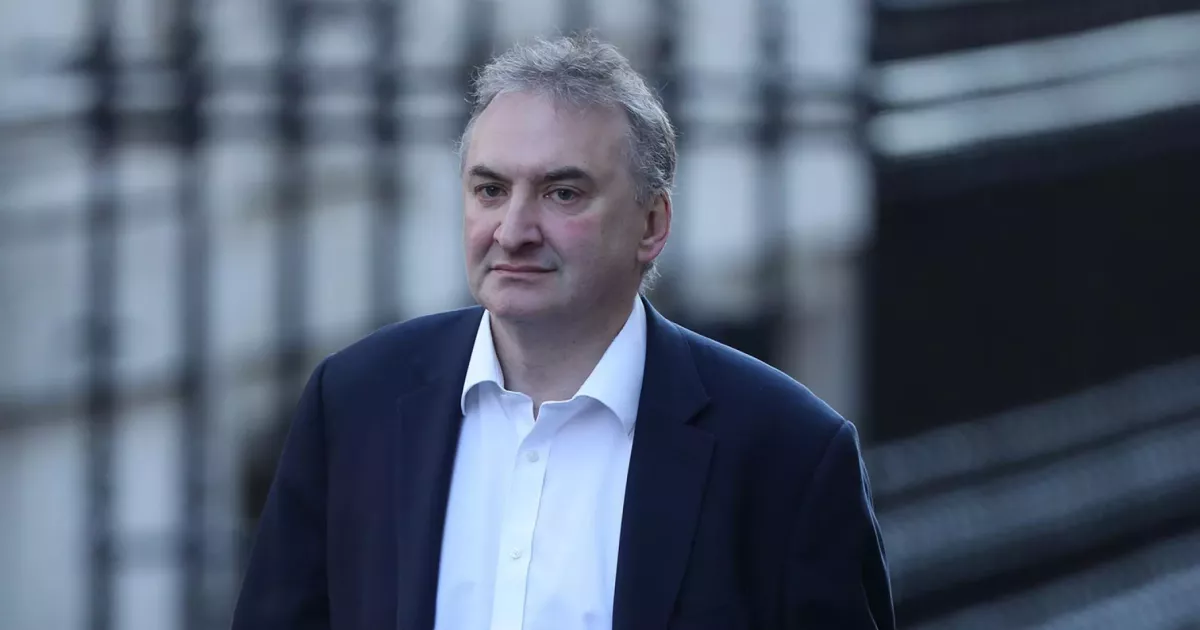Keir Starmer picks Chris Wormald to get his missions off the ground

What steps must Chris Wormald take to transform the British government?
The prime minister has appointed Chris Wormald as his chief civil servant to oversee what he calls the "total overhaul of the British government." Wormald has had a long career in the civil service, serving as the permanent secretary at the Department for Education since 2012 and later at the Department of Health and Social Care starting in 2016. However, he wasn't the most well-known candidate for this position, which might have made him an attractive choice for Starmer, especially after the heavy scrutiny faced by the current cabinet secretary, Simon Case.
In a way, Starmer has opted for a traditional route. Wormald, a long-time civil servant, is well-versed in navigating the complexities of Whitehall and understanding the mindset of the ministers he supports. He collaborated with Nick Clegg during the early days of the coalition government and later worked with Michael Gove on education reforms. Wormald has dealt with various ministers in the Health Department, and his performance during the pandemic will be closely examined, especially regarding his leadership of the department and his involvement in the Covid Inquiry, which continues to demand much of his attention. Additionally, he filled in for Case at the end of 2023.
However, there are also surprising elements to the appointment, as Wormald offers a distinct type of experience for the position compared to many of those who came before him.
Starmer’s CV Shows Commitment To Public Service Reform
Wormald doesn’t come from the usual background of Treasury officials or security-focused cabinet members. Instead, his professional journey has been rooted in social policy, indicating that public service reform is likely to be a major focus for Starmer.
It all begins with the operations at the core. The responsibilities of the Labour Party have not been fully understood, and Wormald needs to enhance the organization of No.10 and the Cabinet Office to ensure the upcoming 'priorities for change' from the government are successfully implemented. Additionally, it's important to strengthen the collaboration with the Treasury, which tends to take over when there is a lack of clear guidance from the center.
Wormald has to dive right into preparing for the spending review and establish a strong presence in the Treasury. He should demonstrate that his lack of previous experience as a Treasury official is actually an asset, not a drawback. The organization needs to sense the fresh perspective and strategic focus that a new leader can bring, particularly someone assigned the responsibility of enhancing performance in public services, especially for health and education. With the government pledging £22 billion to the NHS, the prime minister requires someone who understands the best ways to allocate that funding.
"Insiders Must Embrace External Feedback"
The advantages of experience are clear. However, as someone well-placed in Whitehall, Wormald must actively look for challengers and innovators to provide an outside viewpoint. There's a lot that must be reformed in the civil service, and it won't be long before ministers become upset with the slow pace of progress and the shortcomings in government capabilities.
As the head of the civil service, Wormald must align himself with those advocating for change and leverage his position to tackle persistent issues such as high staff turnover, skill gaps, ineffective performance management, and unclear responsibilities. Additionally, it’s essential for Wormald to foster confidence within the civil service. Officials will be looking to him to capitalize on the government's fresh start in its relationship with ministers, and he will need to create a visible public presence. Whether he embraces it or not, the role of cabinet secretary is one that now faces significant public attention and scrutiny, and Wormald will need to step out of his comfort zone to effectively represent the civil service.
However, he must go beyond simply sending encouraging messages. To implement the necessary changes, he needs to establish trust with both the civil service and the prime minister. As a long-time civil servant, he should also seek solutions beyond the usual confines of Whitehall. Given that some critics argue that someone from within the system may not be the right choice for reform, the new cabinet secretary should understand the value of bringing in senior team members from non-traditional backgrounds.
Wormald Needs More Than Experience To Succeed
The role of cabinet secretary and head of the civil service is particularly challenging because it demands a wide range of leadership abilities. As cabinet secretary, Wormald must fully support the government while also embodying the stability of the state. He has to alert the government to any policy decisions that may fail and propose different options. Additionally, he is responsible for maintaining high standards, yet he must also show deference to the prime minister. On top of all this, he needs to inspire, motivate, and support the civil service while also implementing necessary reforms.
However, he has also been tasked with transforming the operations of the British government. Wormald must clarify the concept of mission-driven governance and, as mentioned in Starmer's press release, he should be a cabinet secretary who can dismantle barriers between different government departments and tap into the vast possibilities of technology and innovation.
Starmer commended Wormald for his extensive experience, but emphasized that the new cabinet secretary will require both fresh ideas and that experience to truly thrive.













































